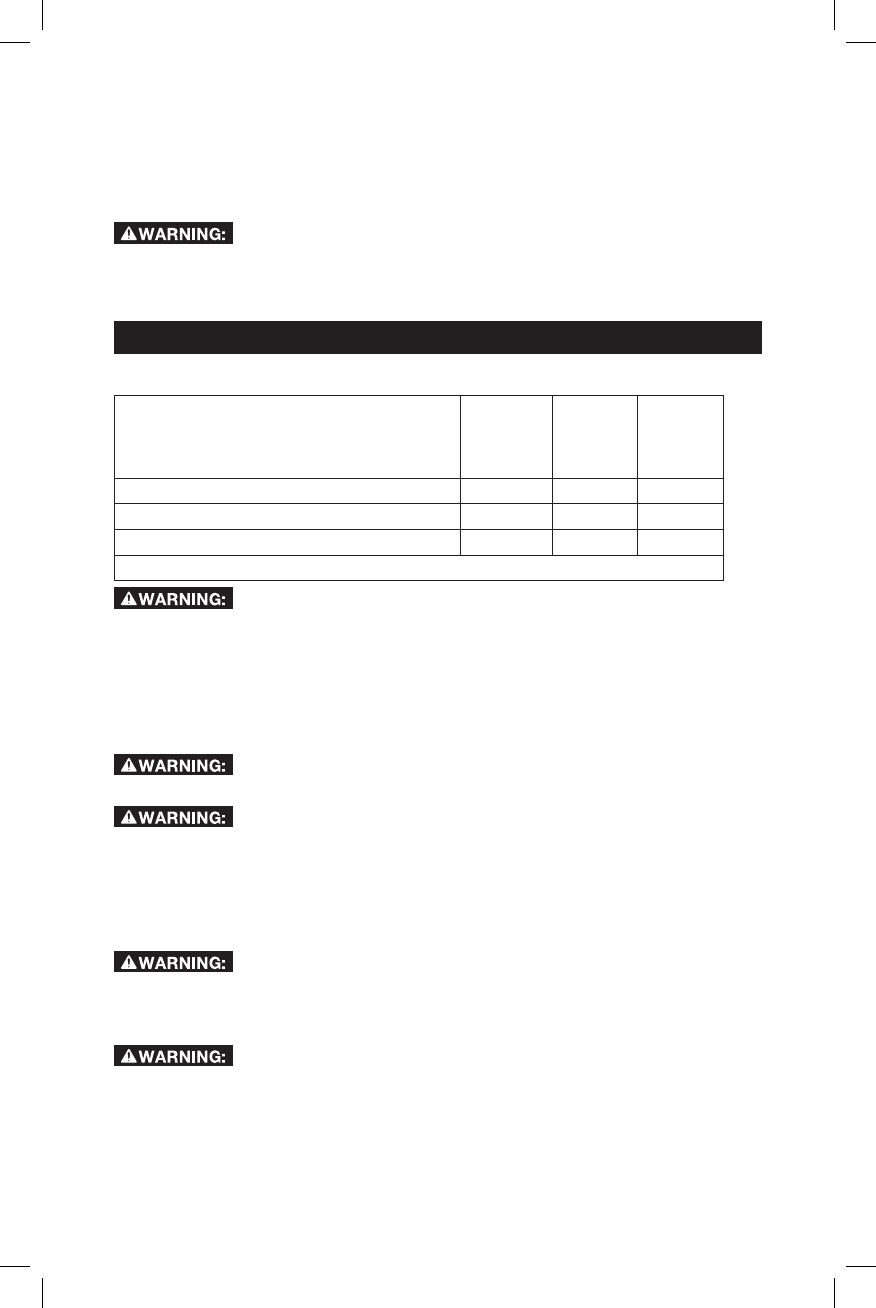
12 - ENG
How to Start
1. Set the On/Off switch to "On" and allow tank pressure to build. Motor will stop
when tank pressure reaches "cut-out" pressure.
2. Turn regulator knob clockwise to increase pressure and stop when desired
pressure is reached.
Risk of unsafe operation. If any unusual noise or vibration is
noticed, stop the compressor immediately and have it checked by a trained
service technician.
The compressor is ready for use.
MAINTENANCE
CUSTOMER RESPONSIBILITIES
Before
each use
Daily
or after
each
use
See tank
warning
label
Check Safety Valve
X
Drain Tank
X
Remove tank from service
X(1)
1- For more information,
call our Customer Care Center at 1-(888)-848-5175
Risk of unsafe operation. Unit cycles automatically when
power is on. When performing maintenance, you may be exposed to voltage
sources, compressed air, or moving parts. Personal injuries can occur. Before
performing any maintenance or repair, disconnect power source from the
compressor and bleed off all air pressure.
NOTE: See Operation section for the location of controls.
TO CHECK SAFETY VALVE
Risk of Bursting. If the safety valve does not work properly,
over-pressurization may occur, causing air tank rupture or an explosion.
Risk from Flying Objects. Always wear certified safety
equipment: ANSI Z87.1 eye protection (CAN/CSA Z94.3) with side shields.
Before starting compressor, pull the ring on the safety valve to make sure that the
safety valve operates freely. If the valve is stuck or does not operate smoothly, it
must be replaced with the same type of valve.
TO DRAIN TANK
Risk of Unsafe Operation. Air tanks contain high pressure air.
Keep face and other body parts away from outlet of drain. Use ANSI Z87.1
eye protection (CAN/CSA Z94.3) when draining as debris can be kicked up
into face.
Risk from noise. Always wear proper hearing protection during
use. Under some conditions and duration of use, noise from this product may
contribute to hearing loss.
NOTE: All compressed air systems generate condensate that accumulates in
any drain point (e.g., tanks, filter, aftercoolers, dryers). This condensate contains
lubricating oil and/or substances which may be regulated and must be disposed of in
accordance with local, state, and federal laws and regulations.


















